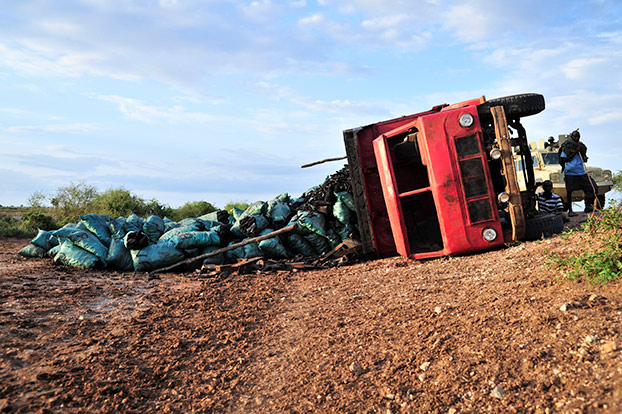People caught up in armed conflicts are not only threatened by violence – they also face dangers and insecurity due to water scarcity, life-threatening pollutants or collapsing buildings. Governments should help protect people caught up in armed conflicts by doing more to protect their environment.
This call is being made by nearly sixty organisations and experts in a statement released today, the International Day for Preventing the Exploitation of the Environment in War and Armed Conflict.
These organisations and experts from the fields of the environment, health, human rights, humanitarian disarmament and sustainable development argue that protecting people and ecosystems means that governments and the international community must move faster and do more to address the environmental causes and consequences of armed conflicts.
The statement comes as conflicts around the world, and their aftermath, are taking an enormous toll on people and the environment through pollution, infrastructure damage and the collapse of governance. At the same time, we know more about how stresses linked to climate change, water and food insecurity, environmental degradation or the unsustainable use of natural resources can contribute to insecurity and armed conflict.
The concept of environmental security includes a variety of issues involving the role that the environment and natural resources can play in peace and security. Acknowledging how environment and security are connected provides insights into how social tensions over natural resources can actually lead to a reduction in conflicts. It also shows how civilians could be better protected during conflicts, and how peace can be achieved and sustained.
Environmental issues are increasingly visible in countries affected by conflict. In southern Iraq, protests erupted over water contamination that has affected 110,000 people and which had been caused by years of conflicts, increasing water scarcity and mismanagement. The UN Security Council has recognised the role that climate change and environmental degradation have played in fuelling conflict in the Lake Chad region. In Somalia, the long-running conflict is being sustained by a vicious cycle of overharvesting for the charcoal trade and the degradation of agricultural lands.
You can also read a blog published by the Wilson Center, a US think tank, outlining why environmental security concept should be at the core of the debate on conflict, environment, climate change and all other related issues.
Download the statement.




